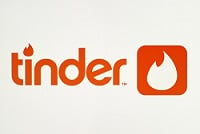 The Match.com IPO date was announced in a regulatory filing Monday. The company will price its shares on Wednesday, Nov. 18, after market close. The first day of trading will be Thursday, Nov. 19.
The Match.com IPO date was announced in a regulatory filing Monday. The company will price its shares on Wednesday, Nov. 18, after market close. The first day of trading will be Thursday, Nov. 19.
The online dating company, which owns Tinder, Match.com, and OKCupid, will price its IPO of about 33.3 million shares between $12 and $14 per share.
Here's what we know about the deal ahead of the Match.com IPO date...
Match.com IPO Date and Important Details
- The Match.com IPO plans to raise $536.7 million. That values the company at $3.4 billion. That's about $800 million less than some analysts had expected earlier this year.
- Shares will be listed on the Nasdaq under the symbol "MTCH."
- The Dallas-based company says it has turned a profit in each of the last three years and had $1 billion in revenue over the 12 months ended June 30. Match Group has about 59 million active monthly users, 4.7 million of them paid, using 38 languages in more than 190 countries.
- Its headquarters are in Dallas, Texas. The company also has offices in West Hollywood, San Francisco, Tokyo, Rio de Janeiro, and Beijing. com isowned by IAC/InterActiveCorp (Nasdaq: IACI). IAC also owns web properties like Vimeo, HomeAdvisor, About.com, and CollegeHumor.
- Match Group made up about a third of IAC's overall revenue in Q3.
- A large part of Match's success has come from launching new apps and features, such as the swipe left or swipe right that has become Tinder's signature. Tinder makes money from fees. It charges up to $19.99 a month. The company's filing showed Tinder had 583,000 paid members at the end of September, six months after the launch of its premium service.
- OKCupid is free but has paid memberships with extra features.
- Match.com charges users a monthly fee.
- The underwriters will have a 30-day option to buy an additional 5 million shares. The underwriters are: JPMorgan Chase & Co. (NYSE: JPM); Allen & Company Inc.; Bank of America Merrill Lynch; Deutsche Bank Securities Inc.; BMO Capital Markets; Barclays Plc. (NYSE ADR: BCS); BNP Paribas; Cowen and Company; Oppenheimer & Co.; PNC Capital Markets LLC; Societe General SA (OCTMKTS ADR: SCGLY); and Fifth Third Securities.
- There will be three classes of Match.com stock: common stock, Class B common stock, and Class C common stock. Common stockholders will be entitled to one vote per share, while Class B shareholders will get 10 votes per share. Class C shareholders cannot vote.
- Parent company IAC, controlled by billionaire Barry Diller, will own all shares of outstanding Class B stock. It will maintain majority control of the company after the offering. Diller's company is keeping at least 84% of the shares and, through a dual-class share structure, 98% of the voting rights.
- Match Group said that it plans to use the Match.com IPO's net proceeds to repay related-party debt owed to IAC. It also plans to generate more advertising revenue, noting its current sales are "sustainably below what we should be able to achieve."
- Match also intends to further expand its mobile business. Some 68% of new registrations in the first half of 2015 signed up via a mobile device, according to the company's filing.
- Match Group completed the acquisition of PlentyofFish, another online dating site, ahead of the Match.com IPO date. Match paid $575 million in the acquisition last month.
- Prior to the PlentyofFish purchase, IAC had more than 20% of the Internet dating market, which is expected to total $2.4 billion this year, according to researcher IBISWorld.
- IAC owns almost 50 tailored dating sites based on a variety of shared interests.
- Match celebrated its 20th anniversary in April.
Stay informed on what's going on in the markets by following us on Twitter @moneymorning.
[mmpazkzone name="in-story" network="9794" site="307044" id="137008" type="4"]
The Global Wealth Gap Is Now Alarmingly Wide: The top 0.7% of people in the world now control more than 45% of the entire world's wealth. But it's not just the lower class that's suffering. The global middle class is controlling less and less wealth every year...
Related Articles:
- Reuters: Match's IPO Profile Is Alluring but with Strings
- U.S. Securities and Exchange Commission: Match.com IPO
- The New York Times: Match Is Seeking $3.1 Billion in IPO


